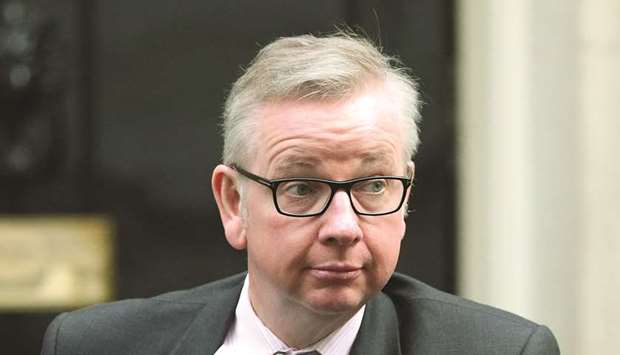Michael Gove has said that reopening schools in January will involve “trade-offs” with other coronavirus restrictions, as one of the government’s top scientific advisers said there would be “very, very tough choices” to keep the virus under control in January.
Downing Street and the Department for Education were likely to decide this week whether schools can reopen on schedule, in the face of calls from scientists for a delay to the staggered start to act as a firewall since limited Christmas mixing was permitted across parts of the UK.
Gove said he hoped primary school pupils and year 11 and year 13 pupils in England would be able to return in the first week of January, with the rest going back later in the month – but said that it would be kept under review.
“Teachers and headteachers have been working incredibly hard over the Christmas period since schools broke up in order to prepare for a new testing regime – community testing – in order to make sure that children and all of us are safer,” he told Sky News. “We do keep things under review but that is the plan.”
Gove told the BBC that it was “our intention to make sure we can get children back to school as early as possible … we are talking to teachers and headteachers in order to make sure we can deliver effectively”.
“But we all know that there are trade-offs. As a country we have decided – and I think this is the right thing to do – that we prioritise children returning to school.
“But we have a new strain and it is also the case that we have also had, albeit in a very limited way, Christmas mixing, so we do have to remain vigilant.”
Prime Minister Boris Johnson has previously refused to rule out further school closures, telling a Downing Street press conference before Christmas that he wanted schools to reopen “if we possibly can”.
The education secretary, Gavin Williamson, is understood to be mounting a “rearguard action” against what one source described as “senior colleagues” who had concerns about schools opening.
Williamson’s allies have been consulting MPs to see if they may publicly come out in favour of schools opening on time.
He is understood to be raising concerns about the effect on summer exams in England if more learning hours are lost.
Williamson will also emphasise he believes school leaders would find it difficult to reopen schools again after a short closure because of the impact on parent and teacher confidence.
The UK’s largest teachers’ union has said the reopening of schools in England should be delayed for at least two weeks amid mounting concern about the new strain of Covid-19 spreading from London and the southeast.
The Covid-19 respiratory disease is caused by the coronavirus.
“Our worry is that they won’t make the right decision today and do what they have done all the way through the pandemic, which is to take an ideological line and get schools back before the testing programme can be properly put in place,” said Mary Bousted, joint general secretary of the National Education Union (NEU).
“Many schools will still not be operating the testing programme if they are to open again on 4 January.
“Then in two or three weeks we would have to go into a longer shutdown as a result.”
While industrial action is not an option, she said the NEU would be strongly advising members that they have a legal right to work in a safe environment.
“We can’t exercise that right collectively but we are giving our members strong advice about their rights,” she said.
The Association of School and College Leaders (ASCL), which is also worried about the transmissibility of the new variant among children, has said that the government should immediately share the outcome of its decision with teachers.
“If the science tells us, and the advice from the chief medical officer says it’s not safe [to reopen schools as scheduled], then we will work with that,” the ASCL’s president, Richard Sheriff, told Sky News.
Independent Sage, the group of experts set up as an alternative voice to the Scientific Advisory Group for Emergencies (Sage), the official panel advising the government, is saying that schools should remain closed until measures are urgently taken to ensure safety.
“At the same time, laptops and Wi-Fi should be made available so all children can participate in distanced learning,” said Stephen Reicher, a professor of social psychology at the University of St Andrews and a member of the behavioural science advisory committee to Sage.
Sir Jeremy Farrar, a Sage member, told BBC Radio 4’s Today programme that the arguments around school reopenings were very finely balanced and the whole country would be facing a difficult few weeks.
“Certainly my own view is that schools opening is an absolute priority.
“But society – and eventually this is a political decision – will have to balance keeping schools open, if that is possible, with therefore closing down other parts of society,” the Wellcome Trust director said.
“It is going be a trade-off between one or other. You cannot have everything.”
The shadow education secretary, Kate Green, said parents would be anxious about reports that government scientific advisers had lobbied for extended school closures.
“The government is failing to be honest with parents and pupils about the return of schools in January,” Green said, but stopped short of calling for a delay to the restart.

Gove: We all know that there are trade-offs. As a country we have decided u2013 and I think this is the right thing to do u2013 that we prioritise children returning to school.
